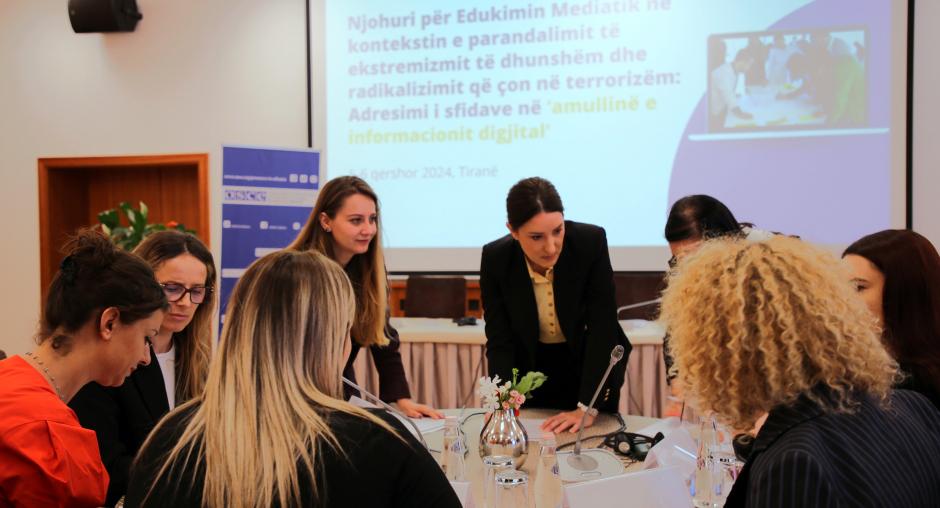Media and information literacy, gender equality, preventing violent extremism focus of OSCE training held in Tirana

The OSCE Transnational Threats Department, in co-operation with the OSCE Presence in Albania, wrapped up an interactive training programme focusing on media and information literacy in the context of preventing and countering violent extremism and radicalization that lead to terrorism (P/CVERLT) in Tirana, Albania, on 5 and 6 June 2024.
The event brought together a diverse group of stakeholders, including representatives of civil society, law enforcement and the education sector to tackle the pressing issues of misinformation, disinformation and malign information (collectively referred to as “information disorder”) in the digital realm. The training programme provided a platform for around 20 participants to reflect on their current and potential roles in addressing the challenges created by a chaotic and unclear information environment and promoting media and information literacy, particularly within the context of P/CVERLT.
Based on an exchange of practical experiences, participants learned from their peers across sectors, identifying co-operation opportunities to promote media and information literacy and better navigate the complex and dynamic online space, thereby building resilience to violent extremism. They also discussed how to ensure that all their efforts are informed by, and in support of, human rights and fundamental freedoms.
The training programme was designed with a broad range of stakeholders in mind, including policymakers and government officials at the local, regional and national levels, as well as from the security and education sectors. Additionally, the programme included civil society organizations working on P/CVERLT and human rights, as well as private sector and media experts.
Participants engaged in interactive sessions and case study discussions throughout the training programme. They exchanged on psychological and technological aspects of disinformation, community engagement campaigns and the “Do No Harm” approach in P/CVERLT efforts. They also discussed practical experiences related to gender awareness in the context of P/CVERLT.
The training programme underscored the OSCE’s commitment to fostering a safe and inclusive digital environment, enhancing social cohesion, and ensuring community-oriented and human rights-centred approaches in P/CVERLT efforts. By equipping participants with the necessary tools and knowledge, the OSCE aimed to build resilience against challenges stemming from the online information disorder and violent extremist messaging online.
The training programme was organized as part of the “INFORMED: Information and Media Literacy in Preventing Violent Extremism. Human Rights and Gender-Sensitive Approaches to Addressing the Digital Information Disorder” extrabudgetary project funded by the United States.
